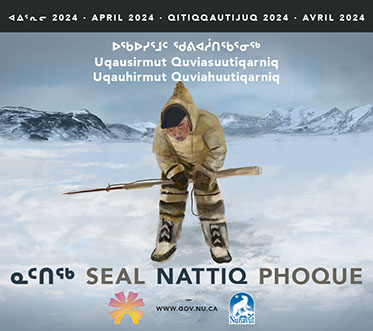'History will record this as a milestone in Inuit education.'
Inuit schooling goes national under accord
Fourteen Inuit and public government bodies joined forces last week to forge a new national approach to Inuit education, through a pact that Mary Simon, the president of Inuit Tapiriit Kanatami, hopes will become "a milestone in Inuit education."
Simon, and Chuck Strahl, the northern affairs minister, affixed their names to the document April 2 before an audience of squirming Inuksuk High School students in Iqaluit.
Called the "Inuit Education Accord," the agreement calls for a national committee on Inuit education to be struck within 60 days and a national Inuit education strategy to be created in one year.
After that, the national committee will ask each signatory group to endorse the strategy, which would guide the work of educators who teach Inuit living in Nunavut, the Northwest Territories, Nunavik and Nunatsiavut.
"We want to get down to the nuts and bolts. We don't just want to develop a strategy," Simon said in an interview after the signing.
"It's all determined by what is the end result. How many kids are getting out of school, how many kids are getting into university, how many kids are being turned back…?"
She said part of that work would include a push for Inuit-friendly curricula.
"Maybe we'll call it the curriculum of the Inuit of Canada…" Simon said.
ITK and others hold out high hopes for the new deal. Simon said in her speech she hopes history will record the event "as a milestone in Inuit education."
"I believe we are at a point in our modern history where graduating more kids from our schools is considered a number one priority," Simon said.
She pointed to India and China, saying the two emerging economic giants now spend heavily on education.
"We are standing at the same threshold. With the era of negotiating our own land claims behind us, we stand at a point in our history where our future success depends on getting our education system right."
Strahl said his signature on the document does not mean the federal government wishes to play a bigger role in the delivery of education programs to Inuit.
"We think it's best done by people who are closer to the ground," Strahl said.
Saying it's "unclear" what the national committee will come up with, Strahl did say Ottawa supports the idea of national Inuit co-operation in education.
"We're not pre-supposing anything. We don't have any conclusions that we've come to. We're just saying we need a partnership, collaboration and a pan-Inuit effort that's never been done before," Strahl told reporters.
Simon said, however, that the federal government does have responsibilities in areas like early childhood and post-secondary education.
"There are aspects that are provincial and territorial but also there are some really important aspects that are a federal responsibility," Simon said.
Eva Aariak, the Nunavut premier, said education is an issue that is "near and dear to her heart:" a key component of her government's Tamapta mandate document and "an integral solution" to fixing many of Nunavut's problems.
"Today we open a door of co-operation between Inuit and the federal government that will enable Inuit jurisdictions, Inuit Tapiriit Kanatami, and the government to work together," Aariak said.





(0) Comments